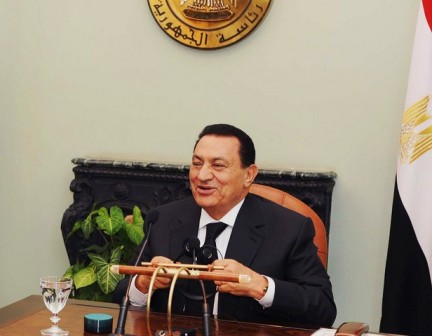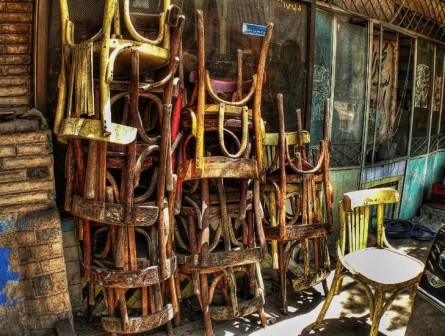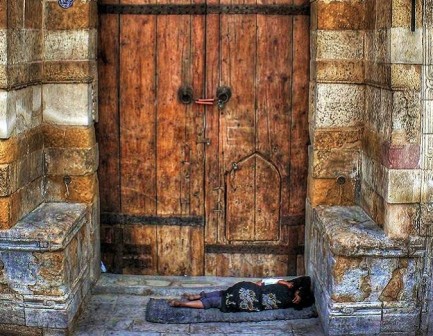Egypt: An Autocracy Endorsed By The United States
NEWS JUNKIE POST
Nov 27, 2010 at 9:30 pmBy Anthony Zeitouni
The results of the parliamentary election in Egypt are known even before election day, Sunday, November 28, because the ruling party of President Mubarak is once again manipulating the people of Egypt to win the race and to marginalize all others, from the Muslim Brotherhood group (an Egyptian political-religious party banned by law) to the other opposition parties, which include the group of Mohamed El-Baradei the former IAEA’s Director General who is upsetting the ruling party and who may run for presidency next year against Mubarak.
Mubarak’s regime considers this parliamentary election a test for the upcoming Egyptian presidential election of 2011. Mubarak is sending a clear message to the world that his regime is strong, dependable and viable. Therefore, it is a crucial race for the Egyptian regime. That is why Mubarak’s party is resorting to scare tactics and bullying the people instead of persuading the people through open debates. Because “the ends justify the means”, Mubarak’s regime believes and acts on the ground. On Sunday, the Egyptian citizens will have no real choice as there are not real opponents to the candidates of the ruling party. Mubarak’s regime may win a totally separate honor by entering the Guinness Book of World Records for knowing polling results before Election Day without using any computer software.
Two incidents clearly tell us that Mubarak’s regime needs Obama to unconditionally approve the outcomes of this election – and any upcoming elections – without having the right to observe, advice or even talk about them. First, we have the harsh rebuttal to the relatively mild advice of Philip J. Crowley, Assistant Secretary of State for public affairs. Spokesmen Crowley said in a written statement that “We welcome the government of Egypt’s stated commitment to expanding political participation and ensuring free and transparent elections….” and he encourages the Egyptian government to welcome the presence of international observers of the elections, as many Arabic countries have done recently. The Egyptian Ministry of Foreign Affairs cruelly rejected Crowley’s advice by criticizing the US “guardianship and intervention in the sovereignty of Egypt”. A US senior official told me in private that how can Obama ask the Syrian regime to run a transparent and fair election if he is not allowed to advise the Egyptian regime, our biggest ally in the Middle East, to whom we have paid around two billion dollars per year for 32 years in a row, and we have been supporting this regime for decades even with its “emergency law”.
The second incident is how Egypt reacted against The Annual Report on International Religious Freedom. The 2010 report, recently issued by the US Department of State, criticizes the religious-based discrimination against the Christians of Egypt among other things, including the “arbitrary pressure” of the Egyptian government against the Muslim Brotherhood group. Once again the Egyptian Ministry of Foreign Affairs severely rejected the report and its principles as well as refusing the US “custody” of the “independent and sovereign” Egypt.
These two statements, occurring within one week of each other, indicate that Mubarak is trying to impose his rules on Obama for the upcoming Egyptian presidential elections of 2011.
Further evidence that Egypt is straining its relationship with the US is found in the headlines of the largest official daily paper of Cairo, Al-Ahram, on November 22, 2010. The article signed by Osama Saraya, the editor-in-chief, is entitled “The Devil Preaching.” Saraya’s article tries to trash the US in front of the Egyptian and Arabic readers by calling it “the devil” just as Osama bin Laden and Mahmud Ahmadinejad do. It is unfortunate that our long-term ally and our enemies speak against us while using the same rhetoric.
What kind of friendship does the US have with Egypt? Obama’s administration should ask itself and its so-called ally, the Mubarak regime of Egypt. If we fail to build relations based on “mutual respect and mutual understanding” with the largest Arabic country, how can we succeed in reaching out to the Muslim people?
The US has a viable interest in Egypt, which relies on US support for its political and economic stability. Mubarak’s regime is selling to the US one product, the protection of the peace agreement with Israel. Egypt has a strategic interest in respecting this agreement no matter who rules the country. The US Congress with its new majority may not be as tolerant with Mubarak’s regime. It may link US aid to political and economic reform in Egypt. The Obama administration should get down to business with Mubarak to reach a “Road-Map” agreement to build democratic institutions in Egypt. Poverty and the marginalization of the Egyptian people by their regime needs to end soon.
It is time to rethink our relations with the dictatorship of Mubarak’s regime as well as the rest of the dictators that we have been supporting for decades. They are returning the favor by blocking our relations with the people of Egypt and other countries.
Editor’s Note:
The second and third photographs are by Xavier Fargas. Anthony Zeitouni (anthonygaz@gmail.com ) is a Washington-based analyst, working in conflict resolution. He focuses on reform, good governance, human rights, minorities and interfaith dialogue in the Middle East. Zeitouni has published in Search for Common Ground and with Middle East Times. He was born in Beirut, Lebanon. His web site is www.anthonyzeitouni.com
Related Articles
- January 31, 2011 Toppling Of Mubarak: A Chance For Peace In The Middle East
- October 17, 2010 Middle East: The Clash Of The Fundamentalists
- February 6, 2011 Will The Secular Arab Revolution’s Domino Effect Reach Iran?
- November 23, 2012 Morsi’s Coup in Egypt: Is the Middle-East Headed for a Muslim Brotherhood Takeover?
- November 20, 2012 G. Mercier on RT: Israel Attack on Gaza Is Worse Than a Crime, It’s a Blunder
- December 23, 2011 Are Islamist Fundamentalists Hijacking The Arab Revolution?















4 Responses to Egypt: An Autocracy Endorsed By The United States
You must be logged in to post a comment Login